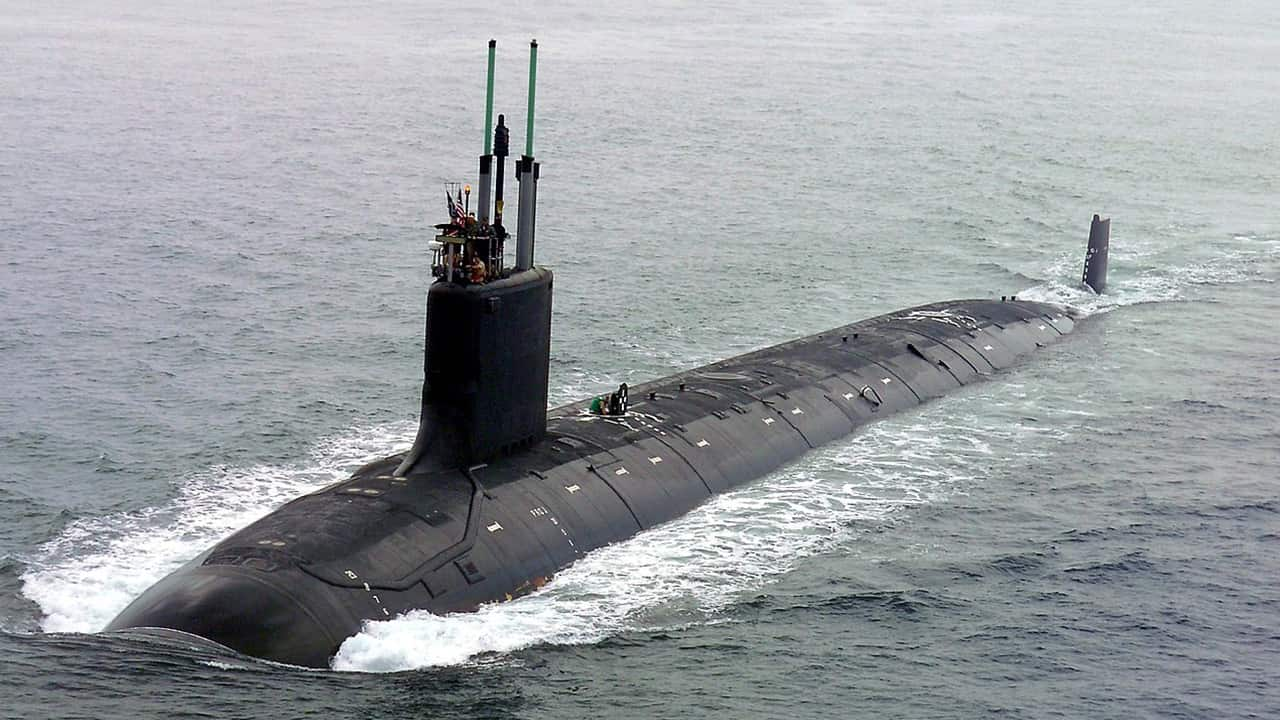Among the people who know about critical military secrets, include those who actively work in the field.
And among those people, include a Navy nuclear engineer from Maryland, the U.S.. Jonathan Toebbe worked at the Naval Nuclear Propulsion Program and had a top-secret security clearance. He worked for the government since 2012.
He and his wife, Diana, were arrested in Jefferson County, following the accusation by the FBI for violating the Atomic Energy Act, the Justice Department said on a page on its website.
The Toebbes were caught selling confidential information about U.S. nuclear-powered submarines to a foreign country, using memory cards hidden inside a peanut butter sandwich and a Band-Aid wrapper.
They did this to transmit the secrets without anyone suspecting, according to court documents.
Toebbe who is 42-years-old at the time of act, "has passed, and continues to pass, Restricted Data as defined by the Atomic Energy Act … with the witting assistance of his spouse," the criminal complaint alleges.

The investigation began way back in 2020, conducted by the FBI.
It started when an agent received a package meant to be sent to a foreign country that contained Navy documents, alongside instructions that said “covert relationship” and methods to use “encrypted communications.”
“Please forward this letter to your military intelligence agency. I believe this information will be of great value to your nation. This is not a hoax,” wrote a note inside the package with the return address of Pittsburgh.
After verifying the validity of the confidential information, FBI agents began their investigations by posing as spies from the unidentified foreign country to began communicating with Toebbe via email.
Their first communication happened on December 2020, where the agents told him that they want to work for him and would know how to contact him to proceed.
After several email exchanges through the encrypted ProtonMail, in March 2021, Toebbe wrote that he would leak the documents for payments in cryptocurrency.
The FBI agents agreed to pay him $10,000 upfront and another $20,000 after the information he provided was received and verified.
The two parties agreed to use the “dead drop” method.
At the first dead drop location, somewhere in Jefferson County in June, the covert FBI agents received the SD card, they see that it was "wrapped in plastic and placed between two slices of bread on a half of a peanut butter sandwich. The half sandwich was housed inside of a plastic bag."
Inside the SD card also included a typed message that said, in part: "I hope your experts are very happy with the sample provided and I understand the importance of a small exchange to grow our trust."
On their next transaction, the second dead drop location was arranged in July in Pennsylvania.
This time the SD card “was hidden in a sealed Band-Aid wrapper with a Band-Aid inside a clear Zip Lock bag,” the court documents continued.
The third dead drop location was in Virginia in August, where Toebbe hid an SD card in a package of chewing gum.
During the deliveries, Toebbe was the person who delivered the packages personally to the agreed dead drop locations, while his wife Diana acted as a "lookout" for her husband, according to the complaint.
Putting everything together, the data from all of the obtained SD cards contained critical and sensitive information, not limited to "militarily sensitive design elements, operating parameters and performance characteristics of Virginia-class submarine reactors." according to a federal court affidavit.
"Thankyou for your partnership as well, my friend. One day, when it is safe, perhaps two old friends will have a chance to stumble into each other at a cafe, share a bottle of wine and laugh over stories of their shared exploits. A fine thought, but I agree that our mutual need for security may make that impossible," Toebbe wrote.
With evidences at hands, the couple was later arrested when they showed up at their fourth dead drop location in West Virginia.
The Toebbes have been charged with conspiracy and "communication of restricted data," according to a criminal complaint.
To lure the Toebbes, the FBI spent a total of $100,000 in Monero cryptocurrency, according to the Justice Department
Knowing that selling government secrets could land him in deep troubles, Jonathan Toebbe even hoped that his foreign government clients (who were apparently FBI agents undercover) would be able to extract him and his family if he was ever tracked down, adding that "we have passports and cash set aside for this purpose."
During his operations, the Toebbes use the nickname Bob Burns and Alice Hill.

Nuclear submarines are not necessarily nuclear-armed, but are nuclear-powered.
This allows the vessels the have performance advantages over "conventional" (typically diesel-electric) submarines.
This is because the nuclear propulsion technology enables it to be completely independent of air. This allows the vessels to be submerged for a prolonged amount of time, freeing themselves from the requirements to surface frequently.
What's more, nuclear submarines can operate at a high speed for long periods of time. And because the long interval between refuelings, nuclear submarines virtually have unlimited range.
Submarines are usually used in stealth operations, and being able to be underwater for a long time is certainly a tactical advantage.
The only limitation factors of nuclear submarines are mostly imposed through the vessels' crews, like the necessities to restock food or other consumables.
Nuclear submarines can cost an estimated $3 billion to build. Because of the high cost, only a few countries can afford owning them.
At this time, only six countries in the world operate nuclear-powered submarines.
These countries are: the U.S., Russia, China, France, India, and the UK. Both the U,S, and UK are set to provide Australia with the technology to deploy nuclear-powered submarines, as part of the first initiative under the new trilateral security partnership AUKUS.
Prior to the deal, which ignited a diplomatic row between Washington and Paris, the U.S. had only shared the technology of its submarines with the UK.
And about the Virginia class submarine the Toebbes were leaking its data, it is a class of nuclear-powered cruise missile fast-attack submarines.
The vessels are designed to incorporate stealth, intelligence gathering, and weapons systems technology, and developed to work on a broad spectrum of open-ocean and littoral missions, including anti-submarine warfare and intelligence gathering operations. They also incorporate several innovations that are not found in other previous U.S. submarine classes.
At this time when the incident happened, only 19 Virginia class submarines are in operation around the world.